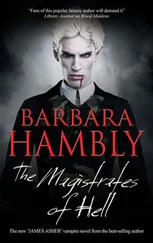Barbara Hambly - Dead water
Здесь есть возможность читать онлайн «Barbara Hambly - Dead water» весь текст электронной книги совершенно бесплатно (целиком полную версию без сокращений). В некоторых случаях можно слушать аудио, скачать через торрент в формате fb2 и присутствует краткое содержание. Жанр: Старинная литература, на русском языке. Описание произведения, (предисловие) а так же отзывы посетителей доступны на портале библиотеки ЛибКат.
- Название:Dead water
- Автор:
- Жанр:
- Год:неизвестен
- ISBN:нет данных
- Рейтинг книги:4 / 5. Голосов: 1
-
Избранное:Добавить в избранное
- Отзывы:
-
Ваша оценка:
- 80
- 1
- 2
- 3
- 4
- 5
Dead water: краткое содержание, описание и аннотация
Предлагаем к чтению аннотацию, описание, краткое содержание или предисловие (зависит от того, что написал сам автор книги «Dead water»). Если вы не нашли необходимую информацию о книге — напишите в комментариях, мы постараемся отыскать её.
Dead water — читать онлайн бесплатно полную книгу (весь текст) целиком
Ниже представлен текст книги, разбитый по страницам. Система сохранения места последней прочитанной страницы, позволяет с удобством читать онлайн бесплатно книгу «Dead water», без необходимости каждый раз заново искать на чём Вы остановились. Поставьте закладку, и сможете в любой момент перейти на страницу, на которой закончили чтение.
Интервал:
Закладка:
This was the part of town called the Swamp. It was here that the half-savage Kaintuck keelboat crews took refuge, and the gamblers, publicans, and harlots who fleeced them. It was here that the runaway slaves hid out, in sheds and tents far back in the trees; here that gaggles of snarly-haired prostitutes hunted, giving themselves to forty men a night in rooms barely wider than the beds they contained or on shuck mattresses on the floors of tents; here that the poorest of the city's poor squatted in squalid cabins among the marshy pools.
The hypothetical visiting stranger would have, by this time, learned how Perdidio Street acquired its name: attenuated to a mucky track, it finally lost itself— elle se perdre, the French would say—in the soggy ground.
That is, if the hypothetical visiting stranger even made it this far, and hadn't been knocked on the head in the dark beneath the trees and relieved of his watch, his purse, his boots, and possibly his clothes as well.
Only strangers in town ever wandered into the Swamp. The local inhabitants knew better.
All except Benjamin January, January reflected as he made his wary way through the darkness toward the shouting and the grimy dots of light. Benjamin January doesn't have the sense to stay where he isn't going to get his head broken for going into the Swamp at this time of night .
He'd come, not up from St. Charles Avenue as a white man would have, but around through the literal swamps at the back of New Orleans, his head wrapped in a length of mosquito-netting against the insects that made the soggy ground nearly uninhabitable in summertime. He listened behind him in the moonless dark, less because he thought Queen Régine might be still on his heels than because slave-stealers sometimes haunted these inky woods, looking to kidnap runaways for resale. For this reason, too, he kept the slide over his lantern, leaving only the barest whisper of light to illuminate the path.
It was a good thing he did, for its stray gleam caught the round gold eye of an alligator lying in the path—a big one, to judge by the glint of teeth as it opened its mouth and lunged at him—and January got soaked to the thighs in water that smelled like a cesspool, stumbling into a bog as he circled wide to avoid it.
Queen Régine must be losing her touch, he thought sourly as he tripped over tangles of elephant-ear, seeking the elusive path again. There weren't any water-moccasins in that pool.
A deadfall log seemed to materialize underfoot, and he banged his shins.
When I find Hannibal Sefton, I'm going to wring his neck for him.
Ahead on his right he could see lights: the long, ramshackle shed known locally as The Rough and Ready. Lantern-light glowed ruby through the cheap calico that comprised one wall, and like a shadow-play January saw men leap up from the makeshift card-table, cursing like the Devils in Hell. The next moment one man was hurled through the fabric wall, bringing the whole of it down with him.
Women screamed. A large gentleman in buckskins collided with the bar, which, being only planks laid over barrels, collapsed, and the barkeep rushed into the crowd laying about him right and left with a nail-studded mahogany club. A squad of hairy Kaintuck boatmen charged the barkeep with fragments of the benches, and January silently moved on.
The Keelboat Saloon lay to his left, on the edge of a vile-smelling bayou. Its customers nearly trampled January as they rushed toward The Rough and Ready to take part in the fight—it was a slow night, and he supposed one had to take one's entertainment where one found it. The Keelboat was even less salubrious-looking than The Rough and Ready, a dirty wooden box with lines of orange light leaking through its sides. A good kick would bring it down. But January kept on his course for the place, for he heard in the blackness of the steamy night what he'd been seeking: the wild skirl of fiddle music, like a drunken Irish angel embroidering golden fantasias on a Mozart ballet.
January closed the lantern-slide and waited in the trees, knowing that in time someone would come out to whom—if he was careful—he could speak. A black man who walked into a saloon anywhere in town risked being beaten up. Even in the elegant establishments of Rue Royale, he would not dare to be seen to raise a hand against a white man in his own defense; here, such an action would no doubt result in an unpleasant and messy death.
So all he could do was wait, the mosquitoes whining as they tangled up in the veils around his hat and the occasional cicada or palmetto bug blundering into the lantern on roaring wings. He wondered if the gator was still around.
Three burly shapes crashed through The Keelboat's door and ran past January in a reeking backwash of chewing tobacco and clothing months unlaundered; one of the local girls was with them, holding up her skirts to her knees and laughing.
The music stopped mid-bar.
A moment later Hannibal Sefton appeared silhouetted in the weak orange rectangle of the doorway, violin in one hand and a brown bottle of whiskey in the other.
“ They flee from me, that sometime did me seek, ” he quoted plaintively, and took a long pull from the bottle. “But I have seen them, gentle, tame and meek / That now are wild. . . . ”
He looked at the bottle, sighed, and turned back into the building.
January emerged from behind his tree and crossed to the shack, sprang up the steps to the door.
As he'd suspected, the saloon was empty.
“Don't tell me you actually drink the liquor this place serves.”
Hannibal was in back of the bar, replacing the bottle behind a loose board in the wall. “Good God, no! I may be a sot, but I'm not a fool. Old Hunks was charging a Santa Fe trapper fifty cents a shot for this on the grounds that it was Scots single-malt.”
He straightened up in the grimy lamplight, resembling a disheveled elf with his long hair straggling out of its old-fashioned pigtail over his back, and his eyebrows standing out dark against his thin white face. “ Thou shalt not muzzle the ox that treadeth out the corn . . . . But of course it's just the same bilgewater Hunks dips out of the barrel for a picayune a cup. . . . What are you doing here, amicus meus ? If you're seriously looking to get yourself killed, I'll offer you a drink. . . .”
“There are better ways to die,” responded January with an exaggerated shudder.
“And being in this room when the refined clientele returns is one of them,” retorted Hannibal. “Let us retire to my quarters. Nothing amiss with the owl-eyed Athene, I hope?”
And as Hannibal limped over to the shaggy, out-of-fashion beaver hat that stood by his chair to receive whatever contributions his audience cared to give, January grinned at the nickname his friend had given the bespectacled Rose.
“I must say I am cut to the quick to find my art playing second fiddle, as it were, to a bout of not-very-efficient fisticuffs,” Hannibal added as he dumped a few Spanish reales, a British shilling, two American half-dimes, and three eleven-penny bits into his hand. “But at least I can get out of here with all my takings this evening instead of having one of the customers relieve me of them ten feet from the door.”
Small heaps of money lay on the room's single table amid a scattering of cards, and presumably there was a cashbox in the same cache as the so-called “single-malt Scotch.” But these Hannibal ignored as he wrapped his violin in its usual swaddling of faded silk scarves and tucked it into its case.
“If you're getting robbed every night, why do you stay?” January glanced right and left as they emerged from the saloon's rear door, though in the pitch-black night a platoon of club-wielding Kaintucks could have stood within four feet of The Keelboat unseen. Undetected by any other sense as well, for that matter, for the ambient stench of privies would have covered the collective tobacco-reek of the average boatman, and the combined roar of the cicadas and the hollers of the fight still in progress at The Rough and Ready would have masked any sound.
Читать дальшеИнтервал:
Закладка:
Похожие книги на «Dead water»
Представляем Вашему вниманию похожие книги на «Dead water» списком для выбора. Мы отобрали схожую по названию и смыслу литературу в надежде предоставить читателям больше вариантов отыскать новые, интересные, ещё непрочитанные произведения.
Обсуждение, отзывы о книге «Dead water» и просто собственные мнения читателей. Оставьте ваши комментарии, напишите, что Вы думаете о произведении, его смысле или главных героях. Укажите что конкретно понравилось, а что нет, и почему Вы так считаете.






